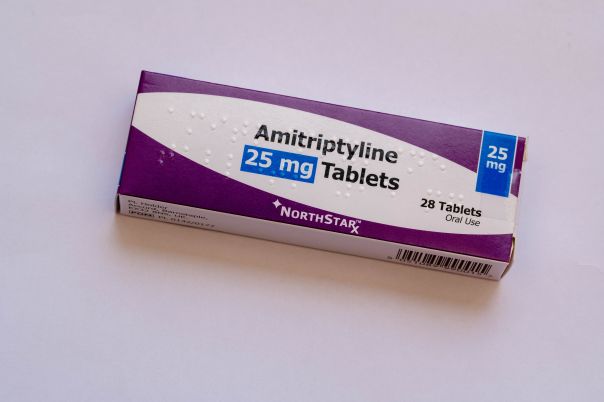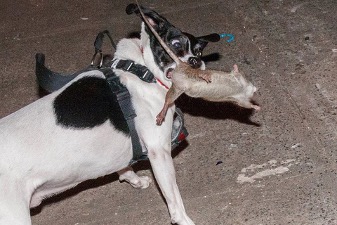Medications are common in our homes; some are OTC meds, while others are prescriptions, such as Amitriptyline. And if you have a dog, chances are he’s watching you take medicine. No one knows for sure whether a dog thinks you’re having a snack or not.
Connect with a verified veterinarian in minutes. Licensed vets are available 24/7 to answer your questions. No need to worry about your furry family member.
But sometimes, dogs do get a hold of our medications. For instance, it’s easy to drop a pill without realizing it, and then your fur bay finds it! He may eat it, and then what? What happens if your dog eats your Amitriptyline medication?
Has your dog eaten Amitriptyline? Are you worried that Amitriptyline will make your dog sick? If so, you’ve come to the right place. We understand it can be scary when your dog eats something like this.
We’ve gathered information about Amitriptyline and whether it can make a dog sick. Let’s get started!

What is Amitriptyline?
Amitriptyline is a prescription medication used to treat mental and mood issues, such as depression. It can help to improve mood and feelings of wellbeing. This medicine can also help relieve anxiety and tension, help a person sleep better, and even increase their energy levels. It’s also used to treat different types of nerve pain and chronic pain conditions.
The medication is called a tricyclic antidepressant, and it works by creating a balance of neurotransmitters, such as serotonin, in the brain.
While Amitriptyline is considered to be safe for humans, what about dogs? Can Amitriptyline make a dog sick?
Amitriptyline & Dogs
Amitriptyline is also used in veterinary medicine to treat behavioral disorders in dogs and other animals. The prescription medication is used to treat separation anxiety, excessive grooming, urine spraying, lower urinary tract disease, and anxiety in cats. This medicine is also used to treat nerve pain, itchiness, and other conditions.
While this is the same medication used to treat humans, the dose is very different for dogs. Their dose is much smaller than a human’s dose. So, if your canine companion eats your medication (one pill or more), it’s possible he could experience an overdose.
The same is true is your fur baby eats too much of his own medication. He can also have an overdose of Amitriptyline.

Review symptoms, medications & behavior to keep your pets healthy with a Vet Online in just minutes.
Ask a Vet Live NowSymptoms of Amitriptyline Ingestion in Dogs
You may notice these symptoms if your dog has eaten Amitriptyline:
- Vomiting
- Diarrhea
- Restlessness
- Agitation
- Vocalization
- Seizures
- Loss of consciousness
- Increase in heart rate
- Muscle tremors
- Fasciculations
If your dog shows any of these symptoms, call the vet immediately. This is an emergency.
An overdose of Amitriptyline can lead to death.
Treatment of Amitriptyline Ingestion in Dogs
The vet may try to induce vomiting if your dog has recently eaten Amitriptyline. In addition, they may also administer activated charcoal. Both of these methods help remove toxins from your dog’s system.
Next, the vet will treat other symptoms as they arise. For instance, they may give your dog diazepam for seizures, propranolol for tremors and irregular heart rate, and more.
Your fur baby will likely need to be hospitalized until he’s in stable condition. During this time, the vet will give your dog IV fluids and treat other symptoms as needed. The IV fluids also help to flush the medication from your dog’s system.
The prognosis is best for dogs who receive prompt medical treatment after eating Amitriptyline. In the future, it’s best to keep Amitriptyline and other medications out of your dog’s reach. You’ll both be happier for it!
Connect with a verified veterinarian in minutes. Licensed vets are available 24/7 to answer your questions. No need to worry about your furry family member.

Julie
Julie is a graduate of the University of North Carolina, Wilmington, where she studied Animal science. Though contrary to the opinion of her parents she was meant to study pharmacy, but she was in love with animals especially cats. Julie currently works in an animal research institute (NGO) in California and loves spending quality time with her little cat. She has the passion for making research about animals, how they survive, their way of life among others and publishes it. Julie is also happily married with two kids.
Review symptoms, medications & behavior to keep your pets healthy with a Vet Online in just minutes.
Ask a Vet Live Now




